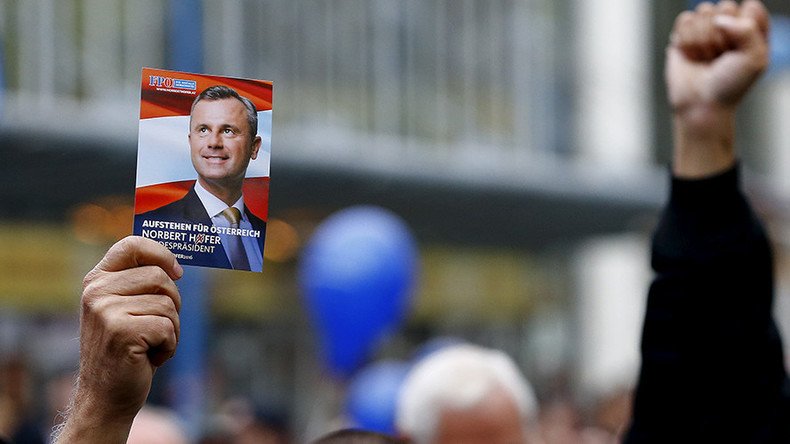‘Some people in the EU feel there’s too much integration’ – former Austrian president

There are several factors behind the rise of right-wing nationalist parties in Europe – economic problems, unemployment, and the refugee crisis are causing discontent among the population, former Austrian President Heinz Fischer told RT’s Worlds Apart.
The European Union has never faced so many challenges at once and arguably has never been so passive in addressing them. Has the EU become too big to fend for itself?
RT’s Worlds Apart host Oksana Boyko discussed this with former Austrian President Heinz Fischer.
RT: The presidential post you vacated in July of this year still hasn't been filled. The second round of elections has been postponed and re-postponed. And a candidate from the right-wing ‘Freedom Party’ is riding high in the polls. And that's after 12 years of your fairly centrist leadership. How do you explain this change in voters’ attitudes?
Heinz Fischer: It is a phenomenon in whole Europe, I believe. Look at other European countries like France, Germany, and the Scandinavian countries. Different factors create certain dissatisfaction among the population. It has to do with economy, it has to do with unemployment, to a certain extent, it has to do with the refugee problem. Some nationalistic moods and philosophies are increasing. And this is, so to say, the basis for that development.
RT: You mentioned several factors playing into the voters’ attitudes, and one persistent thread, one persistent line of argument in many campaigns is ‘getting your country back.’ You hear that from Norbert Hofer in Austria, you heard that during the Brexit campaign in the UK, you hear that a lot from Donald Trump in the United States. What is it about this slogan that resonates with so many people in so different countries?
HF: It has to do with nationalism. The nationalistic ideas, ideologies, and philosophies were totally out of the game. They led to a disaster – to WWII and to this fascist movement. So nationalism was brought down and the European idea was flourishing. And now I have the feeling that many people, or some people at least, feel that there is too much integration.
RT: This is a very interesting point because in your perception of nationalism, you definitely see this as something negative, you just made reference to the Nazi ideology. But the way nationalism is perceived in Russia, for example, is just standing up for your national interest, putting your country first as a matter of projecting its interest and standing up for them. Don't you think that you are, perhaps, exaggerating the dangers of nationalism? Because it is one thing when you are calling for, you know, aggressive moves towards other countries, but it is another thing when you are simply saying “We have the right to stand up for our country's interests”?
HF: First of all, you must understand, I definitely do not want to compare present philosophies or ideas with the Nazi ideology as such. But one thing is true, nationalism in my eyes means to grade down other countries. Patriotism is positive. Nationalism is to overdo the own country and to downgrade other countries...
RT: In your understanding, what is Mr. Hofer campaigning for in Austria? Is he campaigning for nationalism or is he campaigning for patriotism?
HF: There is too much nationalism in my judgment. Because the judgment on refugees or on other nations or on people from Africa is negative and there are prejudices and these prejudices are used for gaining a political advantage.
The statements, views and opinions expressed in this column are solely those of the author and do not necessarily represent those of RT.














